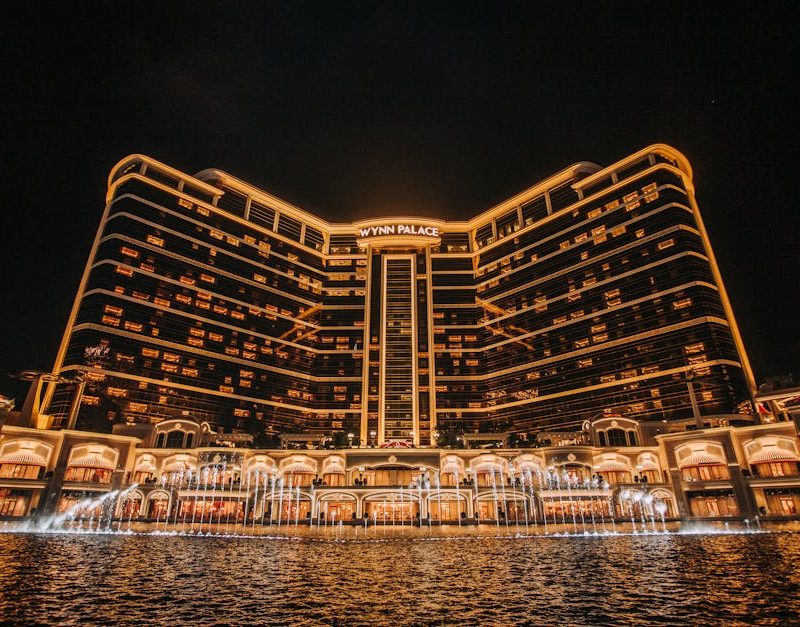
The Masskara Festival, a vibrant and colorful celebration, has become an integral part of Filipino culture, particularly in the country’s casino themes. This festival, known for its elaborate masks and costumes, has a rich history that dates back to the 1970s.
Origins of the Masskara Festival
The Masskara Festival originated in the city of Bacolod, located in the province of Negros Occidental. The festival was first conceived in 1970 by the city’s mayor, Vicente B. Gustilo, as a way to boost the local economy and showcase the city’s rich culture. The name “Masskara” is derived from the words “mass” and “kara,” which means “mask” in the local dialect.
The First Masskara Festival
The first Masskara Festival was held on October 1, 1970, and it was a simple celebration that featured a parade of students wearing masks and costumes. The festival was a huge success, and it quickly became an annual event, growing in size and popularity with each passing year.
The Evolution of the Masskara Festival
Over the years, the Masskara Festival has evolved into a grand celebration that features a wide range of activities, including street dancing, music concerts, and cultural shows. The festival has also become a major tourist attraction, drawing visitors from all over the world.
Masskara Festival in Filipino Casino Themes
In the context of Filipino casino themes, the Masskara Festival has become a popular inspiration for many online games and promotions. Many casinos and gaming platforms have incorporated elements of the festival into their games, such as the use of colorful masks and costumes as symbols or graphics.
Popular Casino Games Inspired by Masskara
Some popular casino games that have been inspired by the Masskara Festival include:
- Masskara Slot Machine: A slot machine game that features colorful masks and costumes as symbols.
- Festival Frenzy: A video slot game that captures the vibrant energy of the Masskara Festival.
- Masked Carnival: A live dealer game that features a carnival theme and incorporates elements of the Masskara Festival.
Cultural Significance of Masskara Festival
The Masskara Festival has become an important part of Filipino culture, showcasing the country’s rich heritage and traditions. The festival is also a celebration of the country’s resilience and adaptability, as it was born out of a desire to overcome economic challenges.
Impact on Local Community
The Masskara Festival has had a significant impact on the local community, generating revenue and creating jobs for local artists, craftsmen, and performers. The festival has also helped to promote tourism in the region, attracting visitors from all over the world.
The Masskara Festival is a testament to the country’s vibrant culture and traditions, and its influence can be seen in many aspects of Filipino life, including casino themes. With its colorful masks, elaborate costumes, and lively atmosphere, the Masskara Festival continues to captivate audiences from around the world.
The Festival’s Vibrant Atmosphere
The Masskara Festival is known for its vibrant atmosphere, which is characterized by colorful masks, elaborate costumes, and lively music.
The festival’s street dancing competition is one of its main highlights, featuring participants from different schools, communities, and organizations showcasing their dancing skills and creative costumes.
Celebration of Resilience and Perseverance
The Masskara Festival is also a celebration of resilience and perseverance. In 1980, the festival was nearly cancelled due to a devastating economic crisis that hit the city. However, the people of Bacolod came together to revive the festival, which has since become a symbol of their strength and determination.
Economic Impact of the Masskara Festival
The Masskara Festival has a significant economic impact on the local community.
The festival attracts thousands of tourists, generating revenue for local businesses and creating jobs for residents.
According to estimates, the festival generates around PHP 1 billion (approximately USD 20 million) in revenue each year.
Masskara Festival in Modern Times
In modern times, the Masskara Festival has continued to evolve, incorporating new themes and activities. The festival now features a range of events, including concerts, food festivals, and beauty pageants.
Casino Games Inspired by Masskara
The Masskara Festival has inspired a range of casino games, including:
- Masskara Slot Machine: A slot machine game that features colorful masks and costumes as symbols.
- Festival Frenzy: A video slot game that captures the vibrant energy of the Masskara Festival.
- Masked Carnival: A live dealer game that features a carnival theme and incorporates elements of the Masskara Festival.
Tourist Attractions
The Masskara Festival has also become a major tourist attraction, drawing visitors from all over the world.

The festival features a range of activities, including street dancing, music concerts, and cultural shows.
Some popular tourist attractions during the festival include:
- Masskara Grand Parade: A colorful parade featuring participants from different schools, communities, and organizations.
- Street Dancing Competition: A competition showcasing the dancing skills and creative costumes of participants.
- Cultural Shows: A range of cultural shows featuring local music, dance, and art.
Festival’s Global Recognition
The Masskara Festival has gained global recognition, attracting visitors and participants from all over the world.
The festival has been featured in various international publications and media outlets, showcasing its vibrant culture and traditions.
Masskara Festival’s Influence on Art and Culture
The Masskara Festival has had a significant influence on art and culture in the Philippines. The festival’s colorful masks and costumes have inspired local artists, designers, and craftsmen to create unique and innovative works of art.
Community Involvement
The Masskara Festival is a community-driven event, with local residents, schools, and organizations coming together to participate in the celebrations.
The festival promotes community spirit, unity, and pride, showcasing the city’s rich cultural heritage.
Masskara Festival’s Economic Benefits
The Masskara Festival has numerous economic benefits for the local community. The festival generates revenue for local businesses, creates jobs, and stimulates economic growth.
Modernization of the Festival
In recent years, the Masskara Festival has undergone modernization, incorporating new technologies and innovations.
The festival now features digital exhibits, virtual reality experiences, and online gaming tournaments.
Cultural Exchange Programs
The Masskara Festival has also led to cultural exchange programs between the Philippines and other countries. The festival has inspired cultural exchange initiatives, promoting cross-cultural understanding and cooperation.
Awards and Recognition
The Masskara Festival has received numerous awards and recognition, both locally and internationally.
The festival has been recognized as one of the country’s most significant cultural events, showcasing the Philippines’ rich cultural heritage.
Masskara Festival’s Legacy
The Masskara Festival has left a lasting legacy in the Philippines, promoting cultural preservation, community development, and economic growth. The festival continues to inspire future generations, celebrating the country’s rich cultural heritage and traditions.
Filipino Casino Themes Inspired by Masskara
The Masskara Festival has inspired a range of Filipino casino themes, including:
- Masked Marvels: A slot machine game featuring colorful masks and costumes.
- Festival Frenzy: A video slot game capturing the vibrant energy of the Masskara Festival.
- Carnival Celebration: A live dealer game featuring a carnival theme and elements of the Masskara Festival.
The Masskara Festival is a significant cultural event in the Philippines, promoting community spirit, cultural preservation, and economic growth.
The festival’s influence can be seen in various aspects of Filipino life, including casino themes, art, and culture.
As the festival continues to evolve, it remains a vital part of the country’s cultural heritage, inspiring future generations and promoting cross-cultural understanding.





